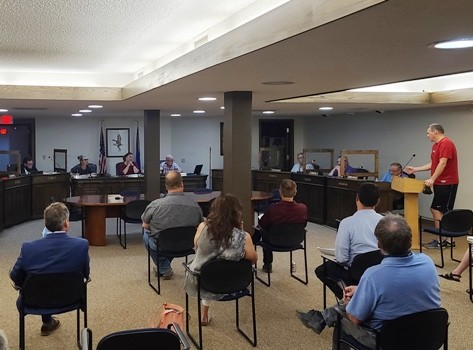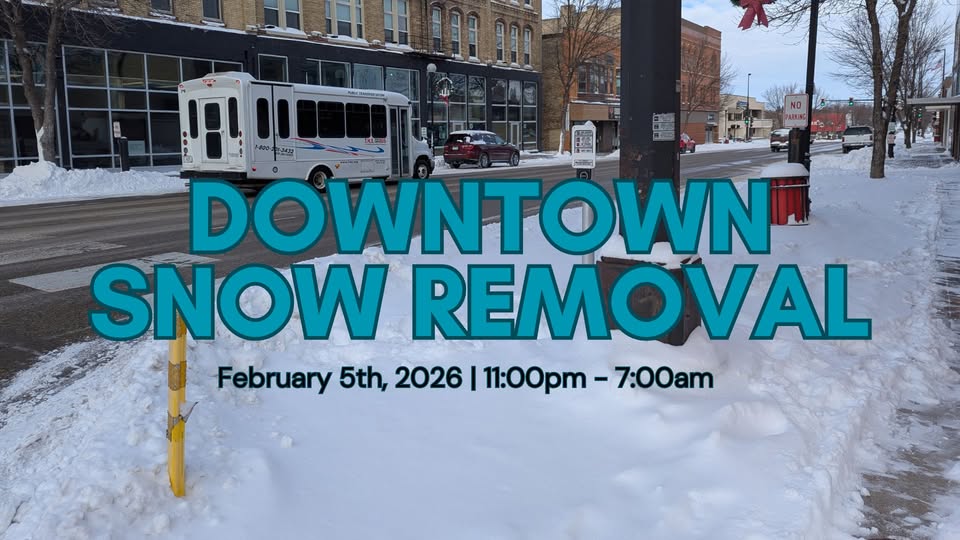The Crookston City Council met on Monday night and had two people speak at the public forum, and the Crookston Fire Department received a FEMA grant.
PUBLIC FORUM
Michelle Christopherson from the University of Minnesota Crookston handed out information to the council about a COVID-19 grant the university received from the Economic Development Administration focused on resiliency and supply chains. Christopherson said she’d already begun speaking with some businesses about their challenges and getting a detailed analysis of individual needs as well as opportunities due to COVID-19.
Chris Fee also talked to the council, thanking the ditch work behind the houses on Barrette Street to fix drainage problems, noting the issue had gotten much better. Fee also asked that the city consider allowing sump pumps to be tied into the sewer system to avoid ice buildups and backups in the winter, similar to what East Grand Forks allows.
CONSENT AGENDA
Two items were pulled from the consent agenda. The first was bills and disbursements, so Councilman Bobby Baird could ask what the difference between elections shields and COVID-19 screens were. Interim City Administrator Angel Weasner explained that the shields were table equipment for use during the elections. At the same time, the COVID-19 screens went around offices at City Hall, so staff had enclosed offices and wouldn’t be required to wear a mask while sitting at their desk.
Baird also pulled the 2020 Street Improvements to ask City Engineer Rich Clauson about signs on the payment and an Erosion Control Supervisor. Clauson explained the signs are required rental for traffic control, and the Erosion Control Supervisor is a necessary part of the Minnesota Pollution Control Agency’s permitting process. “Every project regardless of the size, we need some traffic control out there,” said Clauson. “It’s a normal bid item we put out. A subcontractor supplies the signs. It is their cost of mobilizing people to drop off the signs, the depreciation of the signs. It’s pretty straight forward. The Erosion Control Supervisor is part of the MCPA (Minnesota Pollution Control Agency) permit for the construction permit. The contractor is required to monitor the erosion control devices when they’re in place, document the weather when it happens. The contractor is required to do this because the MCPA permit that’s taken out is in the contractor’s name, so they are responsible for maintaining these devices while they are in place.”
Clauson shared several examples of devices used for erosion control. “Some projects require silt fence,” said Clauson. “Maybe you see those along ditch projects to keep the dirt and sediment from rolling down into the ditch bottom. Others you’d maybe see around town, especially in residential areas, you’ll see covers over the catch basins. Again, that’s to keep the sediment from entering the storm sewer, which would ultimately end up in the river. It’s just being good stewards of the environment and protecting the waterways.”
BREWPUB ORDINANCE UPDATE
Both pulled items were passed unanimously by the council, as was the rest of the consent agenda. During reports, Baird also asked what the timeline was on the brewpub ordinance for the city. Weasner said the committee is reviewing other city’s ordinances, state, and federal guidelines to complete Crookston’s ordinance. She added she believed it would take another three months, including calling and holding a public hearing and passing an ordinance through the council.
FIRE DEPARTMENT FEMA GRANT
During the department head reports, Crookston Fire Chief Tim Froeber reported the fire department had received a grant exceeding $160,000 from the Federal Emergency Management Agency (FEMA). Froeber said the grant was submitted to replace 20-year-old breathing equipment known as a self-contained breathing apparatus (SCBA) for all the firefighters. “We applied for an Assistance to Firefighters grant at the beginning of the year through FEMA for new self-contained breathing apparatus we commonly call SCBAs,” said Froeber. “They are the air packs firefighters use for entry into a hazardous atmosphere so they can breathe good, clean air. Our current packs are 20-years-old and can’t be serviced anymore. We decided to write out this grant, and with our match, they sent us funds for $163,000.”
The fire department and the firefighter’s association will split the $8,000 match. “Our match is roughly $8,000,” said Froeber. “Will split that with the firefighter’s association, which will provide us with 24 new air packs, 48 bottles, and 32 facemasks, one for each of the firefighters.”
It was also noted the IRP committee would meet Friday to review the information and develop guidelines for providing grants with the money the city received from the Coronavirus Aid, Relief, and Economic Security (CARES), Act.




